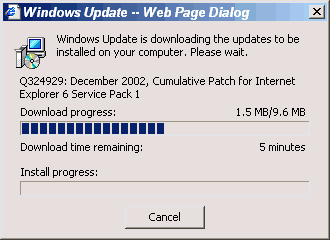We have a “yours, mine and ours” set of computers at home. My system started out as a Compaq Presario in 1994 and has been upgraded piecemeal over the past decade, Katie replaced her Power Mac with a G4 last year, and we picked up an eMachine to use as a dial-up server when we moved in together. (I was going to cobble something together out of the leftover bits from my computer, but it was cheap and saved me the effort of figuring out what was working and what needed to be replaced. Plus it gave us an extra Windows system.)
I’ve been dual-booting Linux and Windows for about 5 years, and spent most of my last year in college using Linux almost exclusively. (Student housing with Ethernet. Having worked in a college computer lab for several years, I didn’t trust Windows 95 to be safe on the network.) Well, a few months after we got the eMachine, hardware problems corrupted my Windows installation. I didn’t want to “borrow” a Windows 98 install CD, I didn’t want to buy Windows Me (piece of ****), Windows 2000 was too expensive, and I really didn’t want the licensing nightmare that is XP. So I delayed, using Linux exclusively, and eventually came to the conclusion I didn’t need to reinstall Windows at all.
Unfortunately, there are very few commercial games written for Linux. Now I’m not much of a gamer, but I do enjoy RPGs, turn-based strategy, and the occasional FPS, and No Windows meant No Might and Magic. Continue reading
